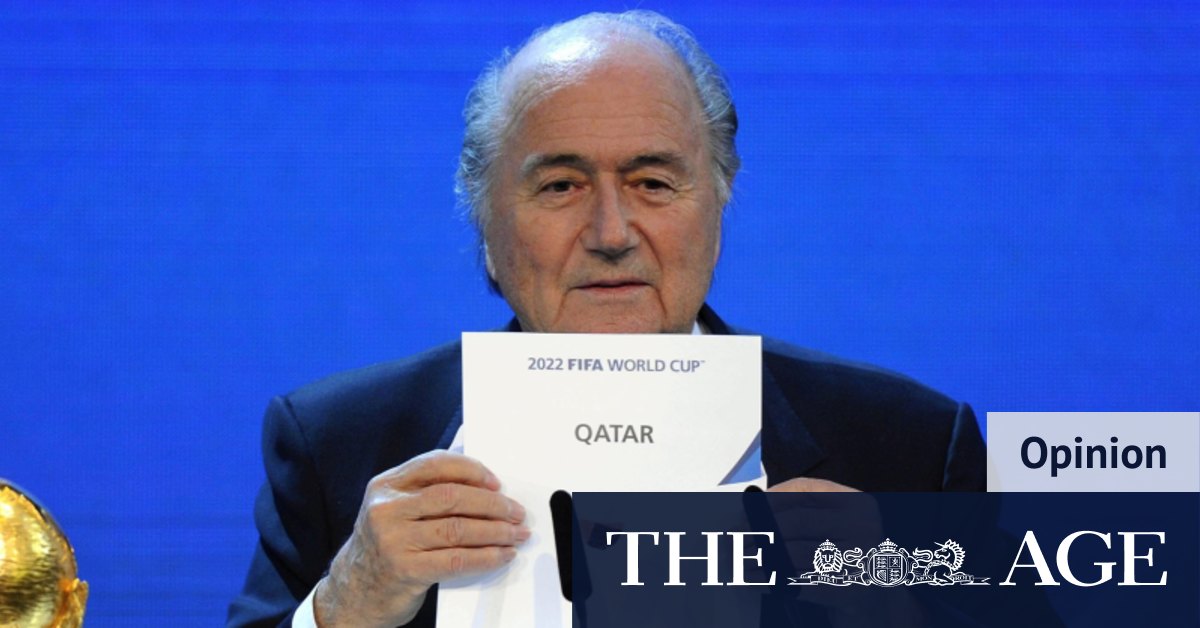
Because much as FIFA might say it’s not the role of World Cup participants to agitate battles of societal justice, considered from another angle, that’s exactly one of the functions of a holding the World Cup in a place like Qatar.
Given that much of the world’s attention between now and Christmas will be focused on Qatar, isn’t that then also the best time to examine its human rights record?
And isn’t it the basic right of players to speak up about human rights issues in places hosting the World Cup? And isn’t it also true that if FIFA felt so strongly about players concentrating on football instead of political and ideological battles, it should choose to send its tournaments to more enlightened places?
Otherwise, it’s actually a vital aspect of such events staged in places like Qatar to transcend the actual sport. It’s naïve to think otherwise. If FIFA is right and the players should stay in their lanes … then just try and run that up the flagpole with the 800 or more of them – and however many thousands more people – involved in this World Cup.
Try selling that message to the perhaps one million spectators who’ll be attending in Qatar or who are presently deciding whether to go or not. For Qatar is no doubt an intimidating place for many of them to travel to.
I’m no demographer, but I reckon it would be a safe bet that some players identify, at least privately, as LGBTQI- as would a proportion of spectators travelling to Qatar.
Same-sex sexual activity is a criminal offence in Qatar and punishments include up to seven years imprisonment. Or worse. If FIFA expects that in 2022 players will ignore the Qatari legal position so as to ensure a clear passage for the running of a football tournament, then it exists in a parallel universe.
Any jurisdiction with those types of criminal laws on the books can’t be the most welcoming of places to travel to. If you’re a gay, lesbian or transgender person, you’d be demonstrating a level of bravery just by entering Qatar during the tournament.
Any proposition that the representatives of the competing teams should remain silent makes no sense. To do so contradicts what FIFA itself says it stands for. Its own statutes, at article 3, say “discrimination of any kind against a country, private person or groups of people on account of ethnic origin, gender, language, religion, politics or any other reason is strictly prohibited and punishable by suspension or expulsion”.
Such a statement must be followed through on. If they are just words on a page, they are nothing other than empty rhetoric.
Does that statement carry any weight? Of course not. If it did, the governing body wouldn’t have awarded the World Cup to Qatar – Blatter’s “bad choice” wouldn’t have been made at all.
Loading
Nor would the previous tournament have been staged in Russia four years ago. (Although in fairness to FIFA, it awarded the 2018 World Cup to Russia also in 2010, three years before Vladimir Putin gave his final assent to a raft of laws granting police powers to arrest people suspected of being “pro-gay”.)
There are about 70 jurisdictions across the globe in which it is an act of criminality to be gay. Qatar is but one of them; technically the “crime”, if committed in Qatar, could be prosecuted as a capital offence.
It might well be that Qatar, knowing that the world is watching, knows also that enforcing its national laws during the World Cup would bring condemnation. However, that possible outcome shouldn’t at all quell the fears that players and others might harbour about travelling to the World Cup.
In 2011, the UN Human Rights Council passed the first resolution approved by any UN body on the human rights of gay people and minority groups. Fifty-four nations opposed the statement, including Qatar. In the intervening period, some nations have reversed that position. The Qataris have remained steadfast.
Sports news, results and expert commentary. Sign up for our Sport newsletter.








